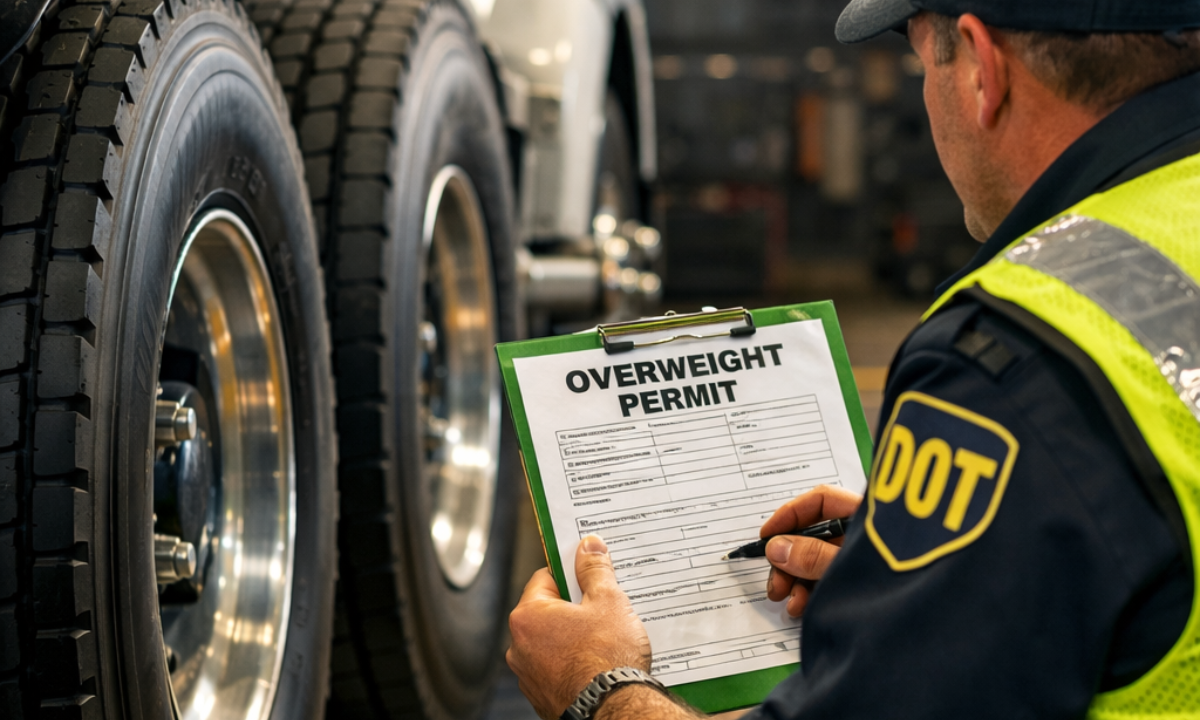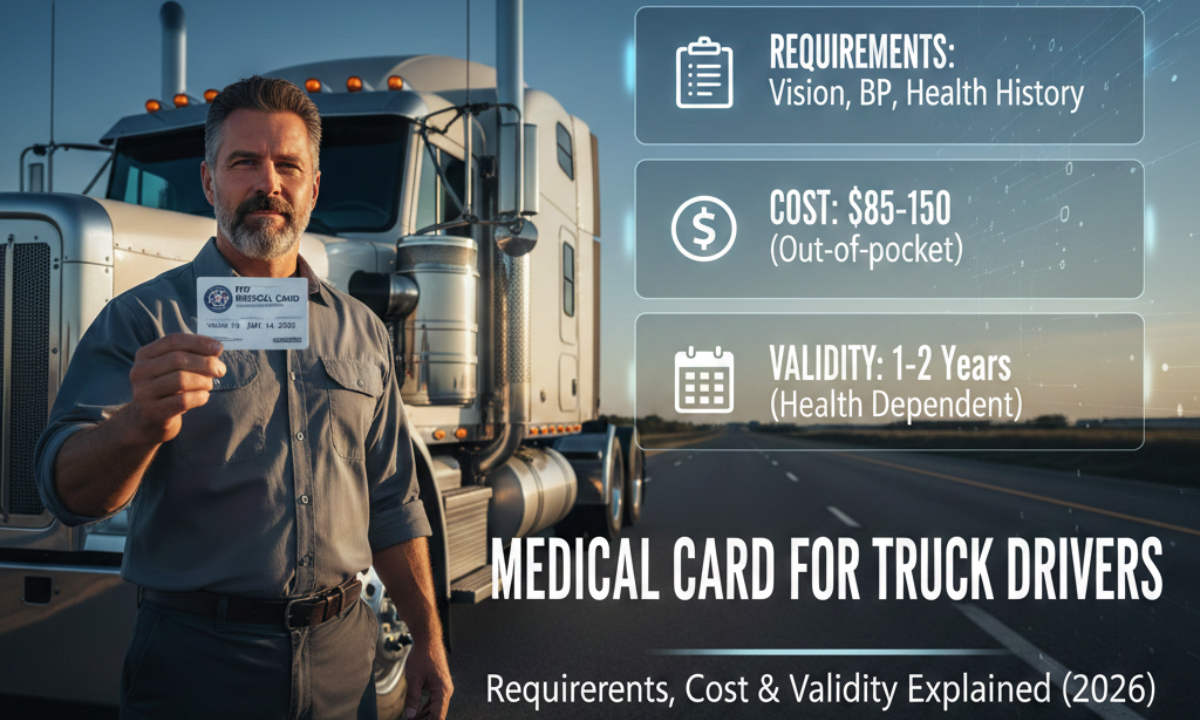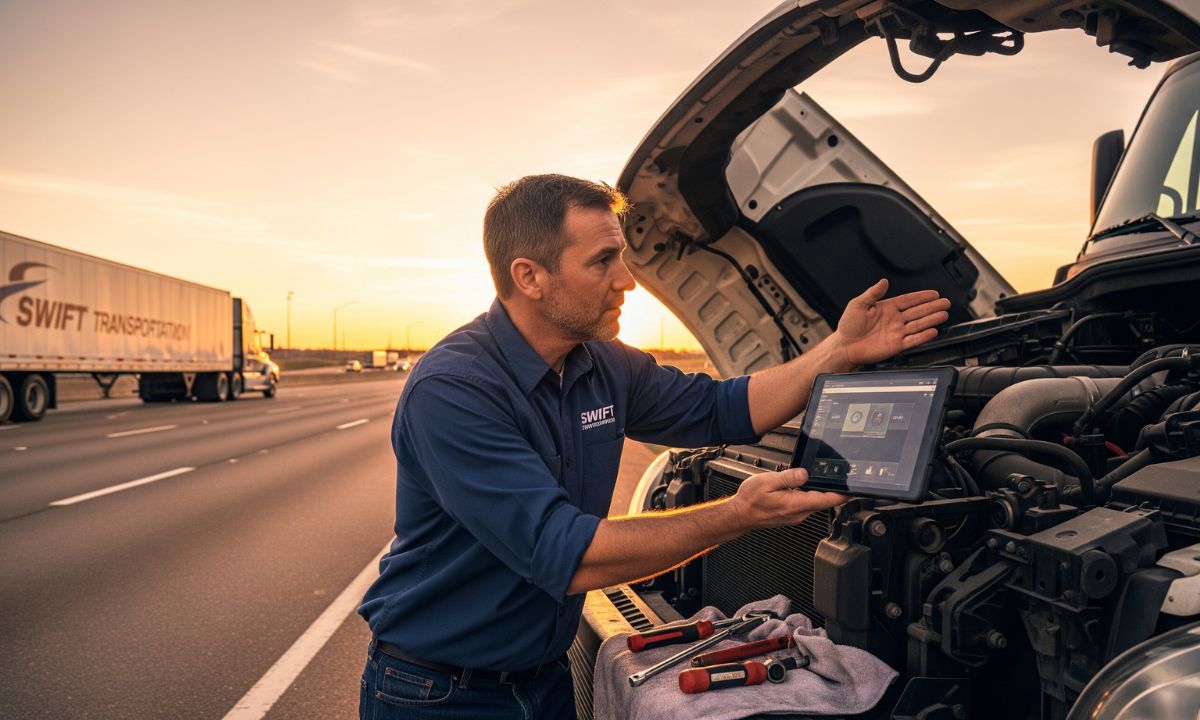Diagnosing Common Trucking Problems on the Fly
Running Quick Diagnostics on Common Trucking Problems
Long-haul truck drivers always face various unexpected problems on their journey, from sudden breakdowns to inefficiencies in performance. The earlier one learns to identify and tackle the common trucking problems in the minimal time possible, the more savings they have on maintenance and delivery times and the more safety it contributes on the road and at the end.Mainly focusing on key areas: engine performance, tire safety, and brake efficiency, one can manage emergencies confidently.
Overheating in the Engine Rooms, and Check-up of the Cooling System
These are the things that are caused for most of the on-road conditions that the driver can experience. Actually, it is the most critical engine overheating. It must allow coolant levels to be checked regularly by the truckers and hoses should not have cracks or leaks. Care cleaning of the radiator grille to permit airflow and monitoring of the water pump performance are most vital to prevent a roadside breakdown.
Fade and Reduced Stopping Power
The heavy load along steep hills tends to subject the brake system to a lot of strenuous effort. One of the most frequent incidences in brake failures is brake fades which happen in situations where heat-lessen braking. Should check wear of brake pads, fluid levels, check for abnormal noises or vibrations. Controlled braking rather than sudden stops will help assure safe operation under the highest stress conditions while extending brake life.
A Blowout and Irregular Pressure in the Tire
The sudden and complete tire blowout is very risky when it takes place. Most of the time, tire failure can be attributed to excess or lopsided pressure. The best prevention against this is checking the tire pressure prior to trips, and monitoring while one hauls long. Truckers might also notice sidewall bulges, cracks, or uneven wear, indicating alignment issues. Those heat-resistant tires would certainly give better reliability while driving during hot weather.
Electrical Failures and Battery Problem
Truck drivers come across numerous electrical problems, ranging from batteries that are running badly to lights that are failing. Terminal corrosion and the heat happens to usually lead to lost power. Most of all, the normal checks of the full charge capacity of the batteries, secured wiring, and alternator performance will ensure that electrical systems remain reliable. Individuals would require carrying extra fuses and basic repair tools, which would save valuable time during emergencies.
Fuel System Problems when on Road
Bad diesel, blocked filters, and air in the fuel systems resulted in stalling and low mileage. In case drivers frequent the filter checks now and then, plus maintaining the draining of water separators, then the ills would be prevented from haunting their vehicles. If the truck feels a little sluggish or lacks power, checking the injectors and pump function can be the first indication of the developing problem before it gets to be worse.
Problems Associated with Transmission and Gearbox
Signs of transmission problems are usually difficulty in shifting gears, noises like grinding, or more instances of slipping. It is necessary to check the levels of transmission fluid and to ensure that the clutch system works smoothly. The earlier it gets diagnosed, the less the chance that the whole gearbox will break down. Such a failure can lead to very costly repairs and long downtimes.
Suspension and Steering Concerns
A ride can become very rough and one can have a mystery of drifting or uneven wear of tires. Checking on shocks, struts, and alignment would minimize the traces of handling difficulties especially on uneven terrains. Most of the time, tightening loose steering components would restore the original stability, and the next thing will be the benefit of comfort in long-distance driving.
Exhaust and Emissions Problems
Modern trucks are configured with highly advanced emission control systems, and a failure in these would trigger warning lights or a drop in engine performance. In such circumstances, exhaust leakage, bad sensors, or blocked particulate filters must be properly checked. Thus, it is important to keep up with scheduled maintenance for an environment-friendly vehicle and prevents power losses while hauling.
Quick Response Tips in Emergencies for the Driver
- Always keep a roadside emergency kit with coolant, spare fuses, and tire repair tools.
- Monitor dashboard warning lights and remedy alerts at once.
- Perform routine inspections before each long trip to detect early warning signs.
- Establish a communication plan to rapidly contact roadside assistance when problems worsen.
Disclaimer: The information provided in this blog post is for general informational purposes only. While we strive to keep the content accurate and up to date, we do not guarantee its completeness, reliability, or accuracy. Any actions you take based on this information are strictly at your own risk. We are not responsible for any losses, damages, or inconveniences that may arise from the use of this blog.












